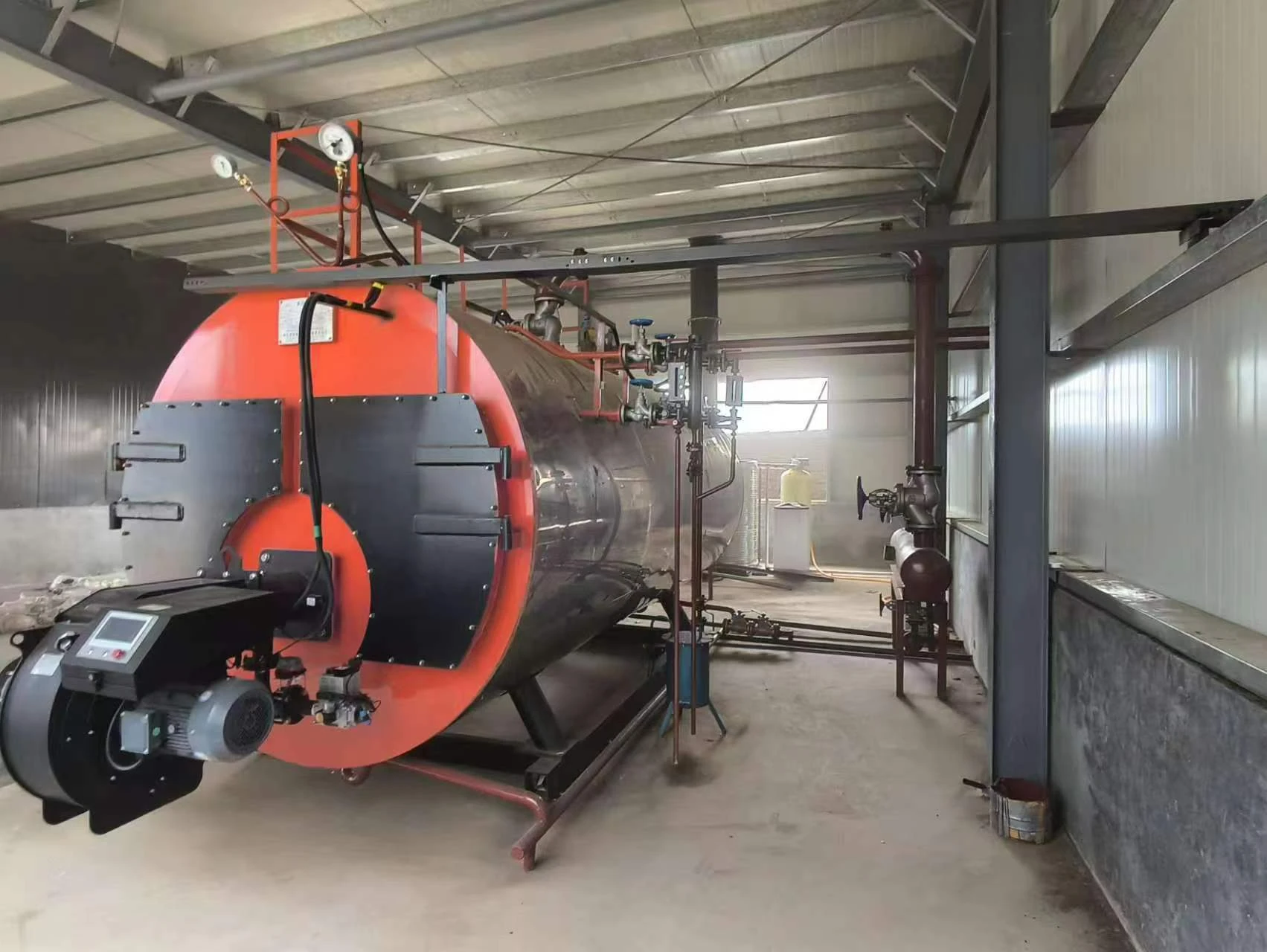
Jan . 17, 2025 04:52 Back to list
Gas (oil) fired steam boiler
In the vast landscape of industrial applications, steam boilers play a crucial role, serving as an integral component in various processes. Catering to different industrial needs requires an understanding of the diverse types of steam boilers available. The selection of the appropriate type of steam boiler is pivotal to optimizing production efficiency, maintaining operational reliability, and ensuring safety. This article delves into the most prominent types of steam boilers used in the industry, highlighting their unique attributes and applications.
Waste Heat Boilers occupy a special niche in industries that aim to maximize energy efficiency by recovering waste heat from exhaust gases. By capitalizing on heat energy that would otherwise be lost, these boilers can generate steam with significant fuel savings and reduced environmental impact. Industries with high-temperature exhaust streams, such as metal processing, glass manufacturing, and refineries, benefit substantially by integrating waste heat boilers into their operations. Lastly, Biomass-Fueled Boilers have gained traction as a sustainable alternative in steam production. Utilizing organic materials such as wood chips, agricultural residues, or specially grown crops as fuel, these boilers support industries in meeting their sustainability targets. While not as common as traditional boilers, the use of biomass-fueled options reflects a growing trend towards reducing carbon footprints in sectors like agribusiness, forestry, and paper manufacturing. In summation, the judicious selection of a steam boiler type defines the operational efficiency, cost-effectiveness, and ecological footprint of industrial processes. Water tube and fire tube boilers continue to dominate by serving large-scale and smaller applications, respectively. Electric steam boilers are perfect for precision-demanding industries, while waste heat boilers optimize energy reuse. Biomass-fueled boilers represent the forward march towards sustainability. Understanding the strengths and limits of each boiler type empowers industries to align with sophisticated production demands and evolving environmental standards, ensuring an optimized balance between operational needs and ecological responsibility.


Waste Heat Boilers occupy a special niche in industries that aim to maximize energy efficiency by recovering waste heat from exhaust gases. By capitalizing on heat energy that would otherwise be lost, these boilers can generate steam with significant fuel savings and reduced environmental impact. Industries with high-temperature exhaust streams, such as metal processing, glass manufacturing, and refineries, benefit substantially by integrating waste heat boilers into their operations. Lastly, Biomass-Fueled Boilers have gained traction as a sustainable alternative in steam production. Utilizing organic materials such as wood chips, agricultural residues, or specially grown crops as fuel, these boilers support industries in meeting their sustainability targets. While not as common as traditional boilers, the use of biomass-fueled options reflects a growing trend towards reducing carbon footprints in sectors like agribusiness, forestry, and paper manufacturing. In summation, the judicious selection of a steam boiler type defines the operational efficiency, cost-effectiveness, and ecological footprint of industrial processes. Water tube and fire tube boilers continue to dominate by serving large-scale and smaller applications, respectively. Electric steam boilers are perfect for precision-demanding industries, while waste heat boilers optimize energy reuse. Biomass-fueled boilers represent the forward march towards sustainability. Understanding the strengths and limits of each boiler type empowers industries to align with sophisticated production demands and evolving environmental standards, ensuring an optimized balance between operational needs and ecological responsibility.
Share
Prev:
Latest News
-
High-Efficiency Commercial Oil Fired Steam Boiler for Industry
NewsJul.30,2025
-
High-Efficiency Biomass Fired Thermal Oil Boiler Solutions
NewsJul.30,2025
-
High Efficiency Gas Fired Thermal Oil Boiler for Industrial Heating
NewsJul.29,2025
-
High-Efficiency Gas Fired Hot Water Boiler for Sale – Reliable & Affordable
NewsJul.29,2025
-
High Efficiency Biomass Fired Hot Water Boiler for Industrial and Commercial Use
NewsJul.29,2025
-
High-Efficiency Biomass Fired Hot Water Boiler for Industrial Use
NewsJul.28,2025
Related PRODUCTS
Copyright © 2025 HEBEI HONGZE BOILER MANUFACTURING CO., LTD. All Rights Reserved. Sitemap | Privacy Policy






















